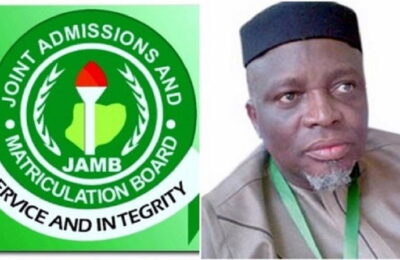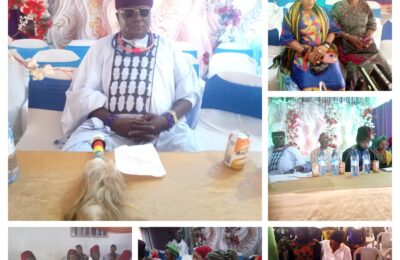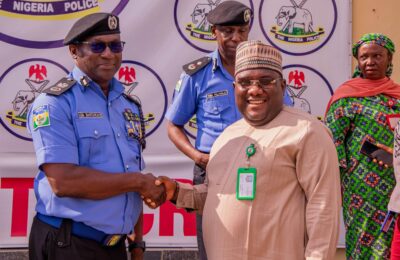7th Kogi State House of Assembly @ 2; An Appraisal
By Idris Abdul Miliki.
Since a new civilian government was inaugurated in Nigeria in May 1999, there has been various efforts by local and international Civil Society Organizations and Development Agencies to work with various tiers and arms of government with a view of nurturing Nigeria’s fragile democracy into a consolidated one. Inspite of the commitments of these institutions to the assistance of the legislative arm of the government, very little has and it being done to systematically monitor their performance in a manner that will enable elected representatives and government officials to receive the necessary feedback on their performance from the people.
Following this sense of apparent fear, the state does not seem not to be prepared to address the critical questions at the heart of democracy – transparency and accountability, and people are of the feeling that elections are merely licenses to power. Equally, it has become more evident that making electoral promises is quite different from fulfilling them.
While the legislative process has a mechanism for checking itself, it also needs to be checked and assessed against certain benchmarks of what it must deliver to the country and its people.
Undoubtedly, the legislature is a very important arm of government, but the devaluation and abuse that it went through during military regimes equally account for its stunted growth and development. This has resulted in several criticisms of the institution by major groups, which include Civil Society Organizations (CSOs), Trade Unions, Students Associations, Professional Bodies, and Women’s Groups in Nigeria etc.
It is important to mention that it is the manner of members elected into the legislatures that will determine the nature and quality of debate that would be generated in these Assemblies. If the members of such Houses are experienced, competent, as well educated, then the legislatures will be the better for it. Although, it is quite unfortunate that this criteria is not truly descriptive of the present legislators in the House of Assemblies in Nigeria. The National and State Assemblies have become burdened with problems associated with the quality of their membership, like we currently witness in the Kogi State House of Assembly which has affected the performance and output of the 7th Assembly in Kogi State.
It has been noted that the current 7th Assembly in Kogi State has witnessed and is currently witnessing various challenges, ranging from infrastructural decadent, lack of enough manpower and resources that can make genuine input that is expected of a legislative institution. The interference and lack of commitments to resources delivery by the executive have further compounded and is compounding the Legislators’ performance in Kogi State.
However, the unnecessary loyalty of the legislators to the executive is derailing the effectiveness of the performance of the 7th Assembly in Kogi State. It must be realised the independence of legislative institutions is not antagonistic and should not be seen as such. Legacies of leaders depends on the approach to governance in a democratic setting and the record they create during their leadership tenure.
As someone who has worked in the Kogi State House of Assembly for the past 14 years, not as a staff or as elected member, but engage with both the staff and legislators in legislative activities through participating in Public Hearing, initiating Bills and partnering for passage, conducting workshops for legislators and their legislative staff along with other Civil Society Organisations (CSOs) both in and out of Kogi State, I believe we are in a position to make an assessment on the performance of Kogi State House of Assembly.
Regrettably, the current 7th Assembly of Kogi State has not performed to the expectation of the people. Ranging from oversight functions to Ministries Departments and Agencies (MDAs) and the Local government, as findings from expected oversight functions are not made public. The level of public hearing participation is nothing to write home about by the citizens, as the 7th Assembly in Kogi State have only organized one public hearing on Budget before passage, and that was in 2019. Despite that budget is a Bill that need public input and participation like any other Bill that maybe presented to the legislature, either by the executives or through citizen lead.
LEGACIES
In the last few years of our activities in the Kogi House of Assembly, under various speakership, we wish to note the following:
Rt. Hon. Clarence Olafemi‘s tenure witnessed high level of stability without much rancour as he remain the longest serving Speaker of Kogi State House of Assembly. At the end of his tenure, he left behind a Clinic and a Restaurant that are still useful, functional and of benefit to both visitors, staffs and Honorable Members of Kogi State House of Assembly.
During the leadership of Rt. Hon. Abdullahi Bello, as the Speaker of Kogi State House of Assembly, he worked and maintained the independent of the Assembly and make sure the monthly Allowance of Committee Clacks were paid directly to them, as against the usual payment of such to various committee chairmen of legislators.
The tenure of Rt. Hon. Momoh Jimoh Lawal, despite the crises that was witnessed when he was the Speaker of Kogi State House of Assembly, he was the one that partitioned the space that is currently occupied by Legislative staffs. The idea then was to make it a temporary office for Committee chairmen or legislators that have no office of their own.
Rt. Hon. Umar Imam‘s tenure, despite the crises witnessed during his tenure as a Speaker, the Assembly building witnessed a lot of renovations by the executive and he left behind a legacy that the present Legislators are enjoying, which to some people may not be noticed but very important. That also symbolised somebody who is prepared to work. He was the person or the Speaker that introduced feeding arrangement to the Assembly for the Honorable Members after seating days. At-least to keep the legislators working for a longer time during seating days. It is an important legacy.
The current Speaker, Rt. Hon. Matthew Kolawole, is one of the luckiest speakers to pilot the activities of the Kogi State House of Assembly for the past three(3) years. Without much crises. Although, it is said in the peace and conflict management studies that lack of war does not guarantee peace.
Unfortunately, under the current leadership of Kogi State House of Assembly, the public perception is that of under-performance and lack of independent and misplacement of priority. Unnecessary adjournment, lack of enough participation of the public in the activities of the Assembly through public hearing as noted above. It is noted and unsatisfactory, the way and manner the budget is passed without proper scrutiny by the Legislators is very worrisome. Even the welfare of the Honorable Members and staffs, under the current leadership in nothing to be proud of.
It is unbelievable, but reality, that there is no renovation carried out or additional put in place on the infrastructure and facilities of the Kogi State House of Assembly.
Even the road leading to the Kogi State House of Assembly, that host, but not limited, to the following very important institutions: Central Bank of Nigeria (CBN), the Zone 8 Police Command Headquarters, the Headquarters, Department of State Security Services (DSS), The Headquarters of Judiciary in Kogi State, The Federal High Court, News Agency of Nigeria (NAN), The Nigeria Customs Service (NCS) and the Biggest Stadium in Kogi State, just to mention but few, are in a shameful and disgraceful condition. Can Kogi State House of Assembly be described as a lantern that provide light around itself under the same lantern remain dark.
We call on the present 7th Assembly of Kogi State, in the second half of their tenure, to review its activities and make it a people-oriented House, that the citizens can be proud of through Law making and Legislative process, so that they can put their feet on the sand of history as no condition and position is permanent. We shall continue to witness change permanently.
Signed:
Idris Miliki Abdul
Executive Director,
Conscience for Human Rights and Conflict Resolution (CHRCR),
Lokoja, Kogi State.



